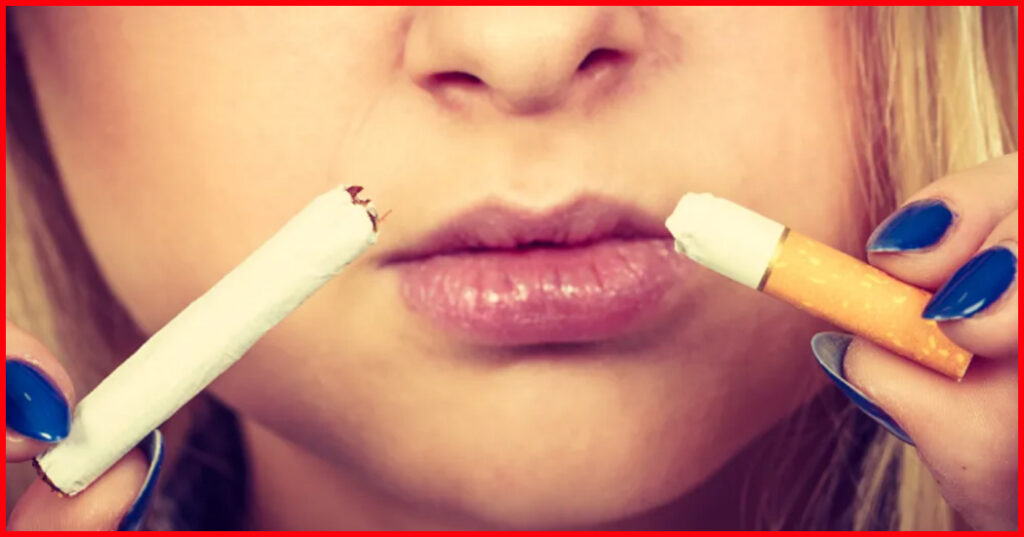Smoking harms our health as a whole. In addition to serious cancer and cardiovascular diseases, the complications of using tobacco products also include unpleasant health problems in the oral cavity. By giving up smoking, you can prevent them or at least minimize their consequences. Let’s know about quitting smoking.
We have known for many years that cigarette smoke is harmful to us. It contains more than four thousand substances, of which several dozen are substances that support the development of cancer (carcinogens). Smoke has also been proven to promote the growth of bacteria in the oral cavity, thereby significantly changing the composition of the dental microflora. It also contains substances due to which the body’s healing function is damaged or immunity is reduced. However, this problem does not only concern products that produce smoke, but also, for example, chewing tobacco, which contains a large amount of nicotine, irritates the gum tissue and also increases the risk of tooth decay.

Smoking doesn’t just contribute to yellow teeth and bad breath
In a chronic smoker, we can often observe discolored or deformed teeth and bad breath. However, these cosmetic marks can only accompany serious and often very unpleasant diseases.
Examples are:
- increased formation of plaque and tartar,
- increased loss of bone tissue of the jaw,
- increased risk of white coatings on the mucous membrane,
- increased risk of gingivitis and tooth decay,
- increased risk of cancer of the oral cavity.
Imagine which problems you would not have to worry about without smoking
Let’s show the effect of smoking on oral health with specific examples of diseases:
Oral leukoplakia
The term leukoplakia refers to white indelible coatings in the mouth. It is a reaction of the mucous membrane of the cavity to long-term irritation. A study published by the American Dental Association shows that leukoplakia completely disappeared within six weeks of quitting smoking in 97.5% of patients who used smokeless tobacco products.
Plaque-induced gingivitis
In smokers, the blood supply to the gums is reduced due to nicotine, so there is no warning bleeding, and despite the increased amount of plaque, the detection of ongoing inflammation is also delayed. By eliminating smoking, the patient is able to speed up the detection of any disease and mitigate its consequences.

Inflammation of the suspensory apparatus of the teeth
Inflammation of the periodontal apparatus (periodontitis) can lead to tooth loss. It is a very common disease and one of the most common reasons for premature tooth loss. In the untreated form, there is a complete collapse of the suspensory apparatus, which also involves the loss of bone tissue of the jaw caused by smoking. One of the causes is also the action of microorganisms occurring precisely in dental plaque. Therefore, the reduction of smoking is one of the main preventions of the development of this disease.
Healing disorders
Smoking weakens the ability to heal and reduces the body’s immune response. In the oral cavity, this can manifest itself, for example, after the introduction of dental implants, when their healing can be considerably slowed down and complicated by the occurrence of inflammation.
Quitting smoking always pays off in terms of oral health
Early initiation of weaning can significantly reduce the likelihood of developing the disease and also improve the symptoms of already incipient diseases. One of the effective and frequently used methods of quitting smoking is nicotine replacement therapy (NRT). Using tobacco creates an addiction to a substance called nicotine, the subsequent withdrawal of which can cause well-known withdrawal symptoms in the body and the desire for a cigarette. NRT uses low doses of nicotine in the form of chewing gum, patches or sprays, which can reduce physical withdrawal symptoms such as tremors . The patient can thus focus on the emotional side of withdrawal. Studies confirm that NRT can increase the hope of complete withdrawal by up to twofold.
Although it may seem that after years of regular smoking, reducing the amount or completely quitting might not change the fate of your oral cavity, the opposite is true. There are several studies that have addressed this topic. In one of them, the authors describe that after reducing the number of cigarettes smoked to half a pack a day, the risk of developing gum disease was reduced by half, in contrast to patients with a habit of one and a half packs a day.





4 thoughts on “How will quitting smoking affect your oral health?”